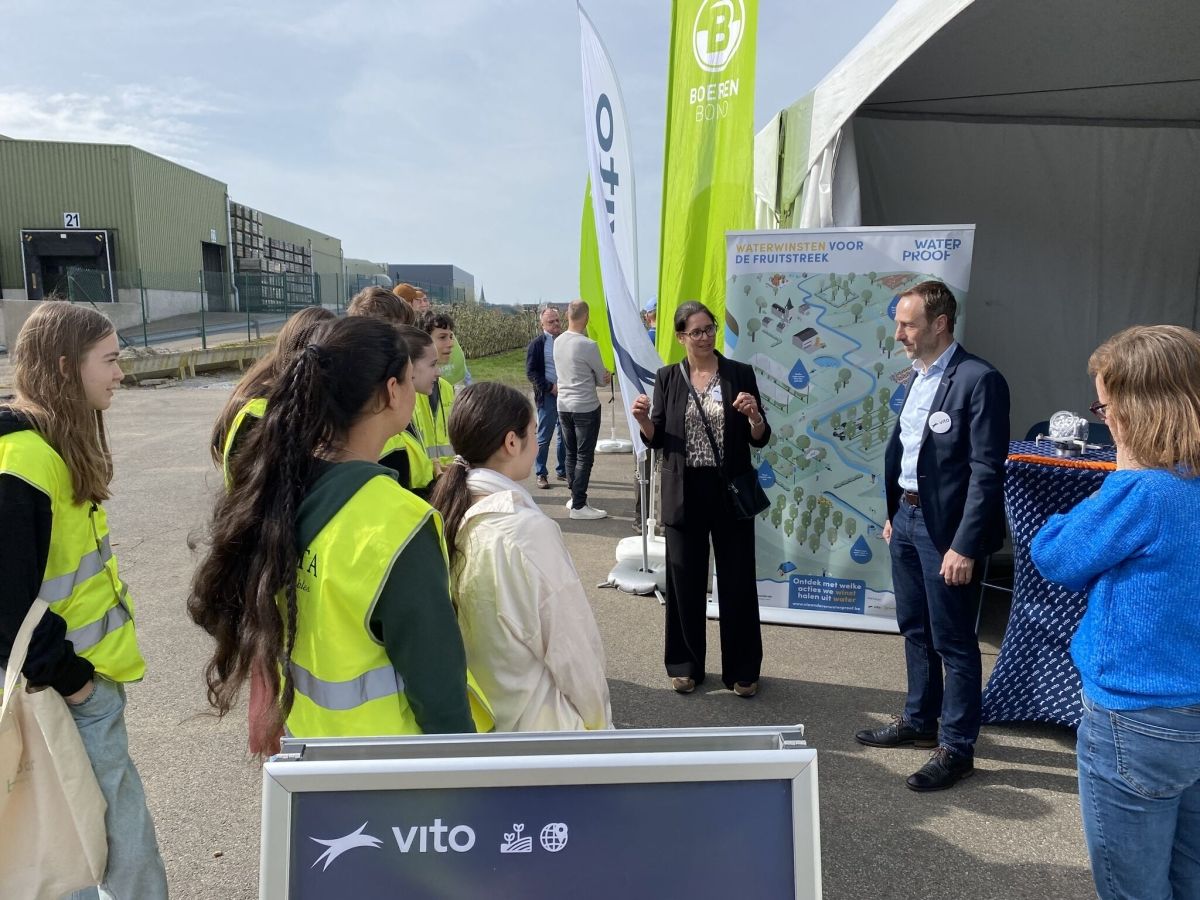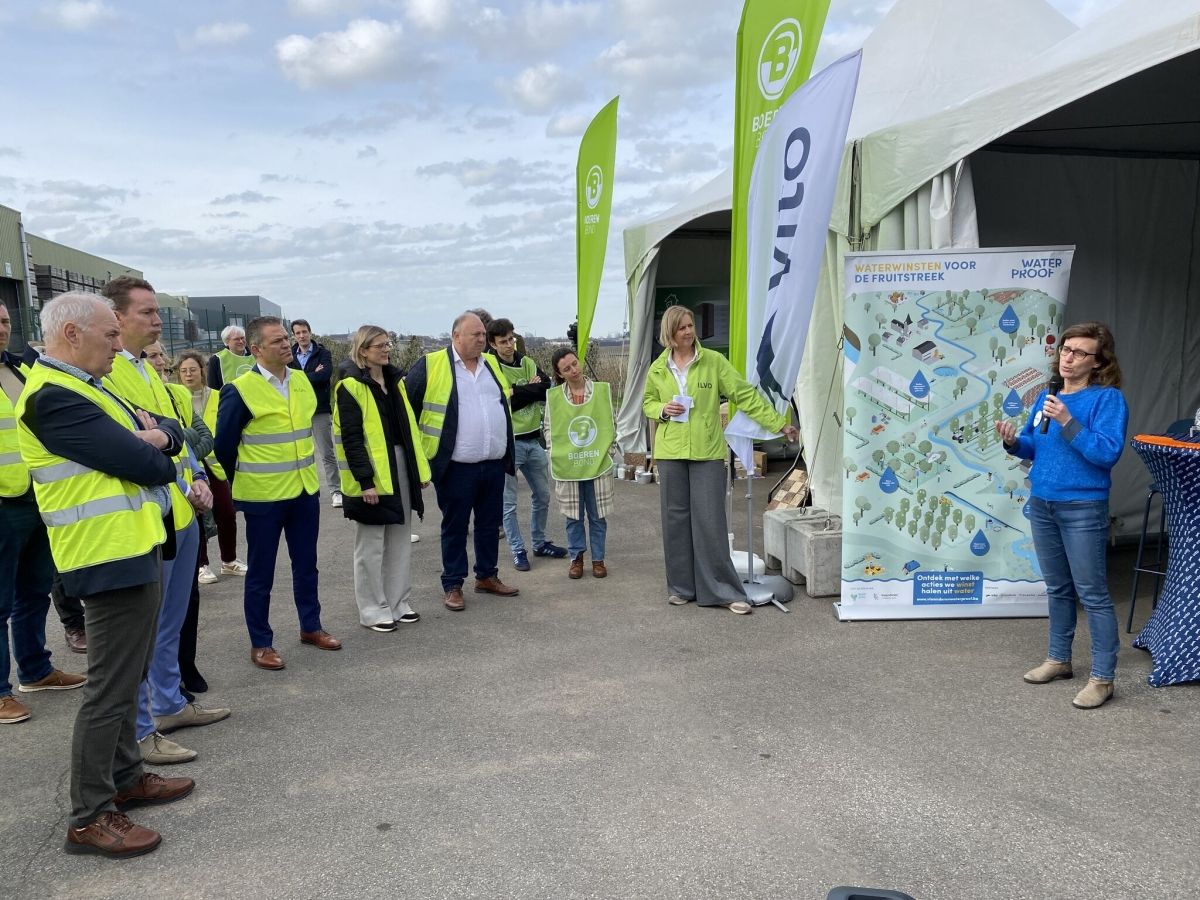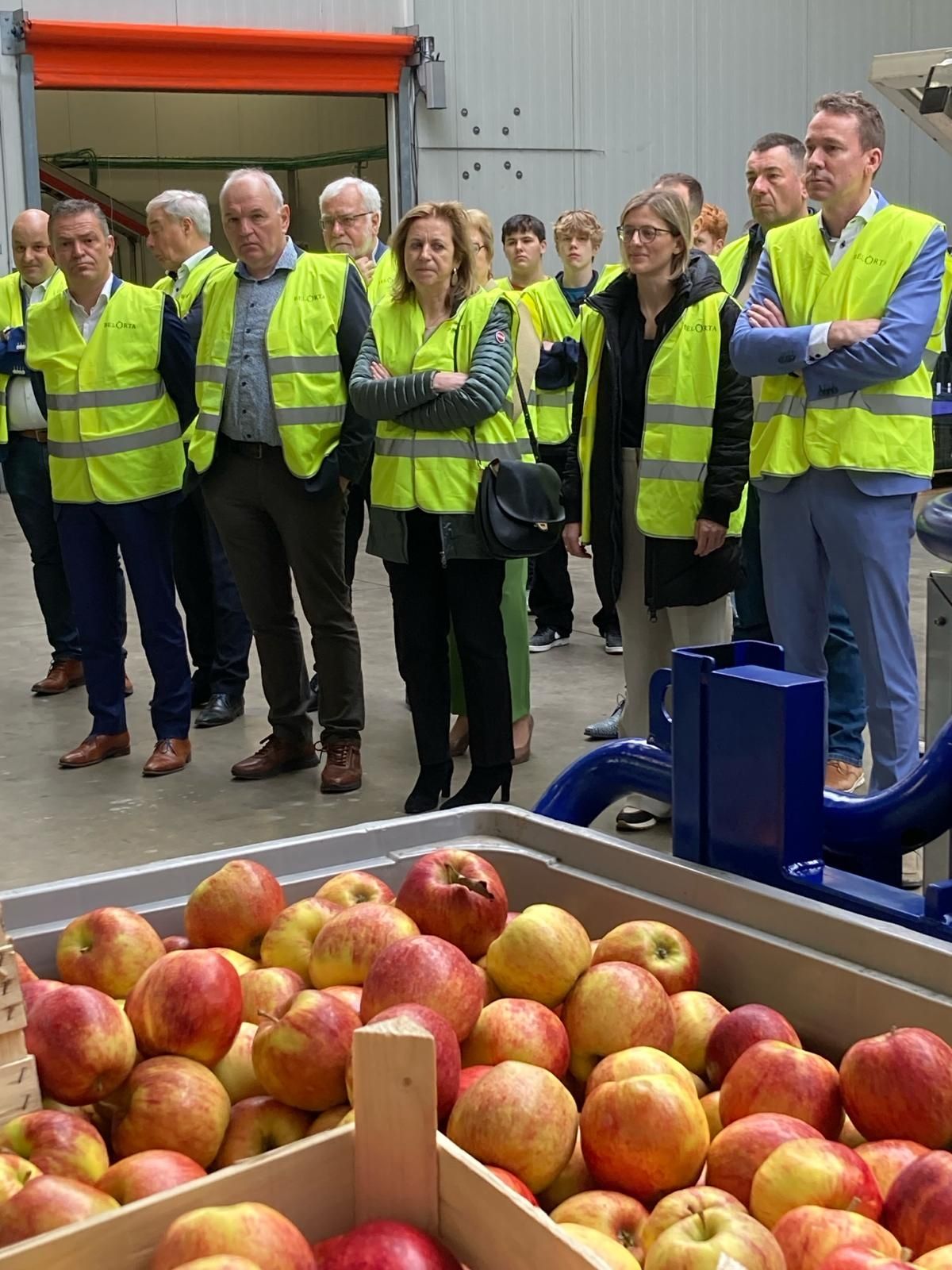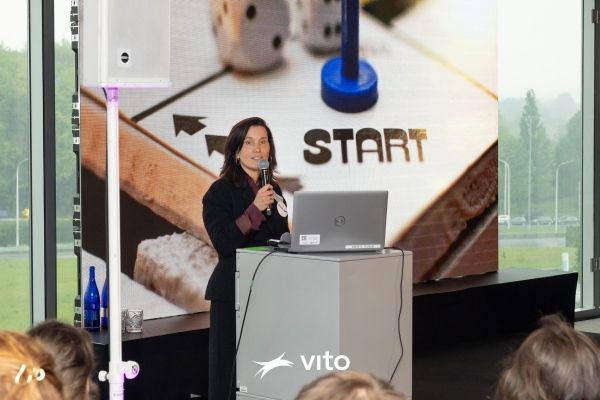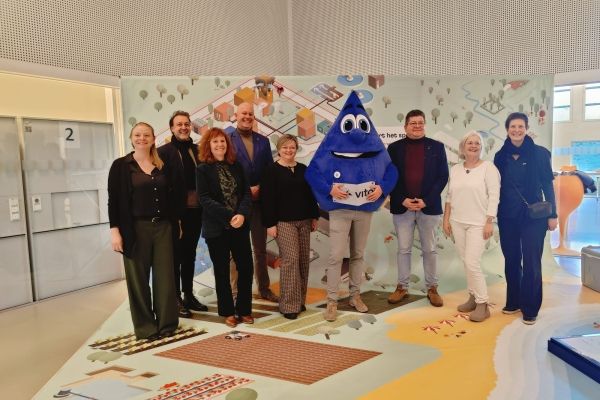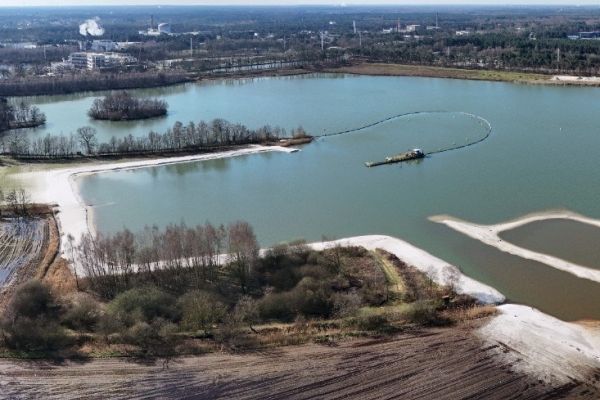Flemish pear remarkably supported by technology
The Flemish agri-food chain is strongly supported in its pursuit of sustainability by innovative techniques. This is certainly evident in the important pear sector: circularity, renewable energy, smart water usage, and adaptation to climate change are ambitions of numerous experts and researchers. At the Flanders Technology & Innovation Festival, 5 knowledge centers at the Belorta Fruit Auction in Borgloon showcase diverse and remarkable results. Minister of Economy, Innovation, Employment, Social Economy, and Agriculture Jo Brouns, present at the press event in Borgloon, emphasized the importance of innovation for the primary sector and also stressed the significance of STEM education: 'Training and finding qualified personnel are important challenges for Limburg's fruit companies.'
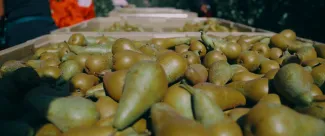
VITO positions precision agriculture and climate-resilient water usage on the Flemish agenda
VITO combines drone imagery and satellite data with weather information and machine data on online data sharing platforms to develop applications for a sustainable, more precise cultivation approach. Additionally, VITO also focuses specifically on water: with sensors and probes, they are able to monitor available water sources, thus ensuring climate-resilient water usage in fruit cultivation. Jürgen Decloedt, VITO: "Our new methods for collecting and interpreting raw agricultural data lead to practical advice for growers."
UCLL showcases its automated-driving pallet truck
University College Leuven-Limburg (UCLL) has developed an affordable autonomous pallet transport platform capable of safely navigating through an orchard. This innovation has the potential to alleviate the labor-intensive tasks for fruit producers. A demonstration is being organised at the FTI. Concrete plans are underway to further develop the transport platform into a more versatile vehicle. By expanding the transportation and lifting capabilities into a multifunctional system capable of autonomously performing various orchard tasks, UCLL, along with KU Leuven, pcfruit, and the fruit sector, aims to integrate the technology into future autonomous agricultural vehicles.
PcFruit is researching how pear trees will look in 2050
The subproject 'Pear Tree' is part of Ecotron, the research setup established by Uhasselt in Genk. In mini-ecosystems, the expected climate of 2050 is simulated: What happens, for example, to a pear tree when it is exposed year after year to irregular rainfall, rising temperatures, and higher CO2 levels? The Fruit Research Centre and the Flemish Centre for Preservation of Horticultural Products are research partners for the Ecotron subproject. "We are assessing the impact of climate change on the growth and quality of pears. Initial results indicate that pear orchards in Flanders will annually absorb approximately 5000 tons of extra CO2 by 2050. This could make a positive contribution to climate change mitigation." At the FTI Hasselt festival, researchers communicated about projects such as Q-pear, Waterproof, and Smart Growers.
Climate pioneer (Boerenbond) in the pear cultivation sector
A pear grower can sequester more carbon in the soil and trees of their orchard than the CO2 emissions released by their plantation machinery and (energy-efficient) refrigeration units on the farm. This is evident from studies conducted by KU Leuven and ILVO commissioned by Boerenbond. One of the fruit growers making significant efforts to reduce the climate impact on his farm is Mark Nickmans. He has been recognized as a Climate Pioneer in Flanders. Elisabeth Mertens, Boerenbond: "Flemish pear cultivation is climate-neutral, and the numerous innovations in the sector ensure that Flemish farmers thrive both economically and ecologically." More impressive climate statistics regarding agriculture can be found in the 'Boerenbond Climate Brochure'.
ILVO is assisting pear (and other fruit and vegetables) towards zero waste
As part of the European research project ZeroW, ILVO is demonstrating an experimental high-tech juice container and a highly flexible juice & smoothie production line for mixed surplus fruits and vegetables at the company Fructus (next to the fruit auction). This makes it more feasible to convert relatively small-scale and diverse surplus produce into long-lasting, pure, healthy juices or smoothies. This is ultimately good news for food banks, as recognized charities, as they receive surplus produce from the auction for free. However, logistics pose a significant challenge for them in distributing fresh products. Juice would give them more time. Additionally, for auctions and growers with peak surpluses, juice processing offers a potential diversification. ZeroW has brought technological and food processing knowledge to the level necessary to precisely address smaller and particularly varied food loss streams.
The cooperative auction BelOrta has implemented a new high-tech sorting line
Six months ago, BelOrta opened its new sorting center for hard fruit in Borgloon. The infrastructure utilises advanced technologies such as optical and infrared cameras for precise quality assessment. The scanning system is ingenious: after the first scan, the pears are flipped for a second scan on the opposite side, enabling optimal sorting. "The automated sorting center for apples and pears now has a capacity of 60,000 tons per year. It elevates the fruit auction to the global level of marketers of apples and pears."
About FTI Hasselt
The FTI sub-festival in Hasselt takes place from March 16th to 21st in and around the region of Hasselt. The aim is to allow young people and the general public to experience how far Flanders has progressed in terms of circularity, mobility, food, and urban culture. www.ftihasselt.be



